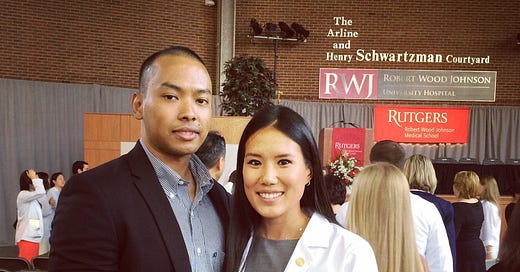I’ve been reflecting on a lot about my decision to become a physician.
Sometimes, I think I chose medicine because it was the safest choice—not the easiest, but the safest. The path to becoming a physician is relatively straightforward: college, maybe some extra pre-med work and volunteering or research (or probably both nowadays), medical school, residency, maybe a fellowship, and finally, attendinghood.
Once you’re a board-certified doctor, there is a certain level of security. Physicians rarely face layoffs. And while there may be some regional differences in demand, there is always a job for you somewhere. Unless you do something illegal or have a mental breakdown or completely burn out, you can be reasonably sure that you will have a job until you decide to retire.
I’m ashamed to admit that before I started my MBA, I knew very little about industries other than medicine. Even now, after a couple of years of studying with and working with my peers in various fields, I’m frequently surprised by the stark difference between medicine and everything else. There are no quarterly performance reviews, sales number targets, or peer reviews that determine your eligibility for a promotion or the likelihood of a layoff*.
*I should note this is in the context of academic medicine. I imagine things are different in non-academic medicine. Academic physicians do undergo annual reviews—teaching, publications, and other activities are evaluated—but in theory, you could focus solely on clinical work and remain secure. Most community and corporate practices, however, tie compensation closely to productivity: the more patients you see or the higher your billing, the more you earn.
These reflections have me questioning why I became a doctor and what truly fulfills me. Would I take the same path again? Would I take more risks?
Keep reading with a 7-day free trial
Subscribe to curated, prn to keep reading this post and get 7 days of free access to the full post archives.



